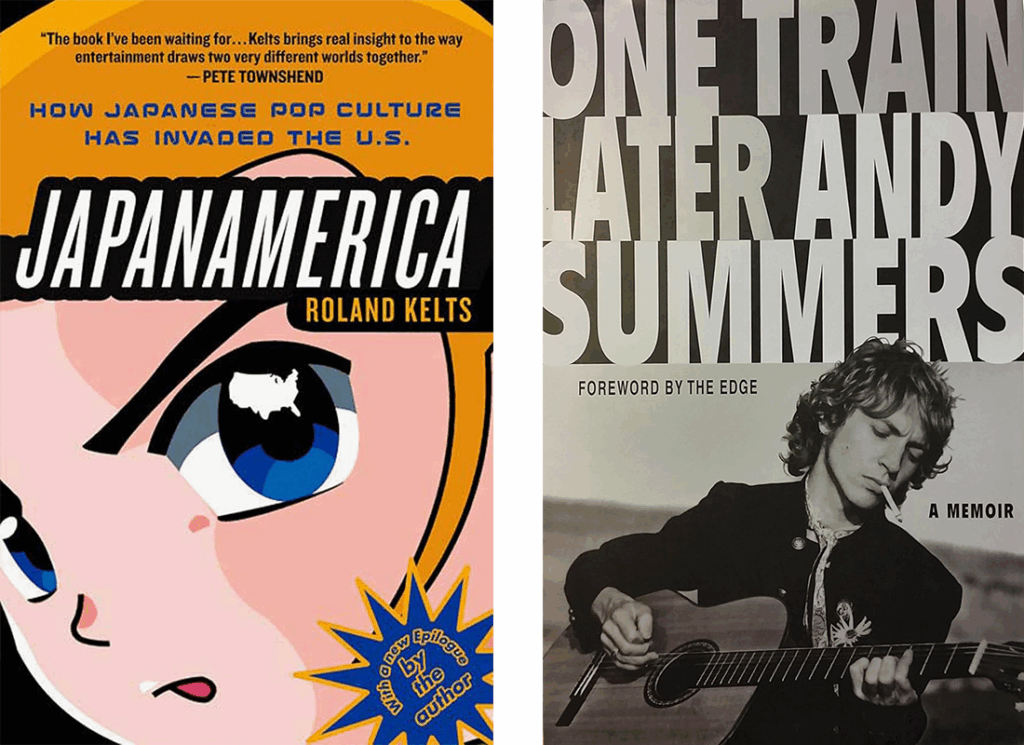In Conversation: Musician Andy Summers (The Police) and Author Roland Kelts (Japanamerica)
On Oct. 7, International House of Japan in Tokyo hosted “a dialogue across music, photography, film and words framed by the allure of Japanese aesthetics,” featuring Police guitarist Andy Summers and author Roland Kelts.

Summers, a self-confessed Japanophile, began by showing a clip from his 2012 documentary, Can’t Stand Losing You: Surviving The Police. It showed him taking photos in Golden Gai, Shinjuku when he heard Every Breath You Take coming from a karaoke bar. The cameraman followed him in. “So I just joined in with these drunks.” After he revealed himself, they seemed to be in shock. “We got lucky there,” he laughed. “I always go to Shinjuku when I am in Tokyo now.”

So what’s all this obsession about Japan and photography then?
“I first got interested in Japan when I was 15 or 16 after watching [Akira] Kurosawa films. I kind of over-exoticised Japanese culture in my mind at a time when the West was just starting to notice Japan and I thought that everything in Tokyo would be like a Kurosawa film.”
Inspired by American photographer Walker Evans—known for his black-and-white images of New York subway riders—Summers bought a 24mm Japanese camera with a wide angle lens. “I was immediately hooked. I had a natural aptitude for photography.”
On screen, he showed the audience some of the monochromes of commuters he secretly took (and illegally, he admits) on the Tokyo subway during his first trip to Japan in the late 1970s. “There are many layers of visual imagery in Tokyo compared to New York,” Summers said.

“One of our first videos was also partly shot around Tokyo, So Lonely, in 1980”:
https://www.youtube.com/shorts/e8hdFsp1hUY
“One of the many wonderful things about Japanese culture is the complete silence on the trains, compared to the West which is cruder, rougher.”
After becoming friends with another American photographer, Ralph Gibson, his technique improved. Summers’s images are now shown around the world including in the US, South America and Europe.
His love affair with guitars began when he was aged 11. “My cousin came into my bedroom and gave me a crappy old guitar with only five strings, but I was immediately transfixed with it and practiced endlessly.”
His first gig came five years later in his home town of Bournemouth, on the south coast of England. “A local jazz club, imaginatively named The Blue Note, let me play during the breaks with a trombonist. Eventually people stopped going to the toilet in the break and stayed to watch me. Then the band asked me to join them.”
“After going to college for four years, I really wanted to be a classical guitarist but ended up playing jazz, teaching music and doing scores in Beverly Hills. Then I left California and returned to England.”

Reading from his acclaimed book, One Train Later: A Memoir published in 2006, which includes his very early days with the Police, he recalled “there were grim times in London. In a nutshell, we sucked,” he said.
“Then we got a gig at Bath University with a 1,000 capacity. We drove down there and were happy together, not expecting much. We trotted out and suddenly loads of punks charged the stage as if we were the last band they would ever see. The welcome we got was incredible, as if it was our final performance. We were blown away. It was a killer show! In Bath we were gods. And then we took off in the UK and soon were playing CBGB in New York.”


